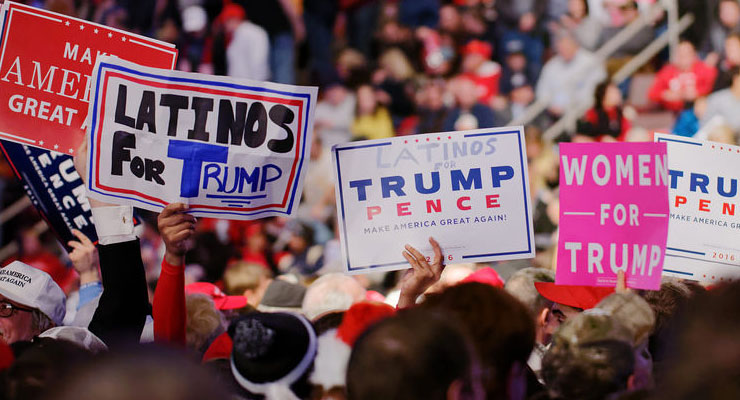
The increasing political polarization, a problem of the entire western world, is based on misconceptions to which today’s politicians find themselves without an ideological solution.
During the night of the US midterm elections, I switched on CNN International for the first time in a year, but no longer found a newsroom but rather something that looked like a military headquarters. Us against the president – the president against us.
In Sweden, almost all parties, media and people in general, support the US Democratic Party. Thus it took me almost a whole day to disentangle news reports and subjective analyses, romantic reviews of Barack Obama and, not least, Trump’s self-assured victory rhetoric, before I dared to form my own opinion of how the election actually turned out. The polarization is not just political, just like in war it permeates the whole of society and it is soon hard to trust anyone.
The biggest winner in the election was for the polarization or division of the United States, the dislike of “the others” and the desire to tell them how wrong they are. It’s an attitude that permeates both sides, but, as most people can figure out, is a deeply destructive development, not only occurring in the United States but in the whole western world.
Many point to Donald Trump when talking about polarization, but it had already started in the 70’s. One has to look deeper. Also, it isn’t caused by social media. And when trying to understand who was supporting the right-wing radicalization, it turns out that the idea that it was the poor who supported Trump isn’t correct. In the Presidential election, Trump had more support from the wealthy than Clinton did. In addition, it wasn’t people suffering from high unemployment who voted for Trump; they tended to vote for the Democrats.
But isn’t immigration, at least, a crucial and steady indicator of all the successes of right-wing radicals around the western world? No, not even that is correct. Right-wing nationalism also occurs in countries with almost no immigration at all!
The quest for a simple explanation, for absolute numbers, obscures the view of an explanation that is to be found on a somewhat more analytically demanding level. You have to ask at least two consecutive questions if you want to understand it – which many journalists lack both the time and the un-polarized attitude to do. One is that few people ask themselves why immigrants are disliked. Also, could there be a common negative experience of society that includes an economic and cultural, as well as an emotional and social, explanation for the right-wing radical support?
Some researchers have actually asked these questions and received answers but these haven’t been widely reported. A new perspective of why people vote right-wing radical is: The experience of being marginalized, not being seen, losing one’s status and ending up an outsider.
For example, it is not immigration itself which is the problem but the fear of finding oneself outside a particular social group, thus losing one’s identity, which creates the resistance to immigration. And it’s not unemployment itself that generates the most dissatisfaction but the fear of being affected by it – rich or poor. Those who really suffer from unemployment tend to vote for left-leaning parties or Democrats.
Instead, it’s both a cultural and a social concern to lose one’s dignity and status. New values, new cultures, rapid societal change and a general experience of becoming a loser in this turmoil erode people’s trust in the entire establishment.
The longing for dignity, stability and equality is so great in the United States today that people who despise the establishment, in their desperation, still resort to one of its most dominant cornerstones and its leader, to capitalism and the capitalist Donald Trump. But the trend is the same in Europe; Sweden is today among the most unequal countries in Europe and the gap between rich and poor increases at the same rate as the number of right-wing voters. The “Yellow Jacket” movement and the recent dramatic protests all over France is another voice of the marginalized.
Decades of increasing political polarization should have given politicians plenty of time for reflection and solutions but the political establishment in the western world is led by those who created our polarization. They are as trustworthy as a runaway train!
The Left’s focus on economic justice can contribute to less dissatisfaction, but not to a different experience of the societal machinery as a whole. Their open approach to immigration, cultural integration and disregard to tradition will increase polarization. And Liberalism – favoring an independent market economy, privatization and a world where human value is measured in consumer spending with no concern for the increasing gap between the poor and the wealthy – has no hope. Furthermore, with global players beyond democratic control, mistrust grows. And this climate of fear and anxiety turns people towards conservativism.
Another democratic and ideological new order is required and a wave of social/humanistic unrest is already noticeable, but we need the courage to ask the questions that actually reveal the social and cultural background to deal with what the media reduce to: “violence and protests”.
Leave a Reply